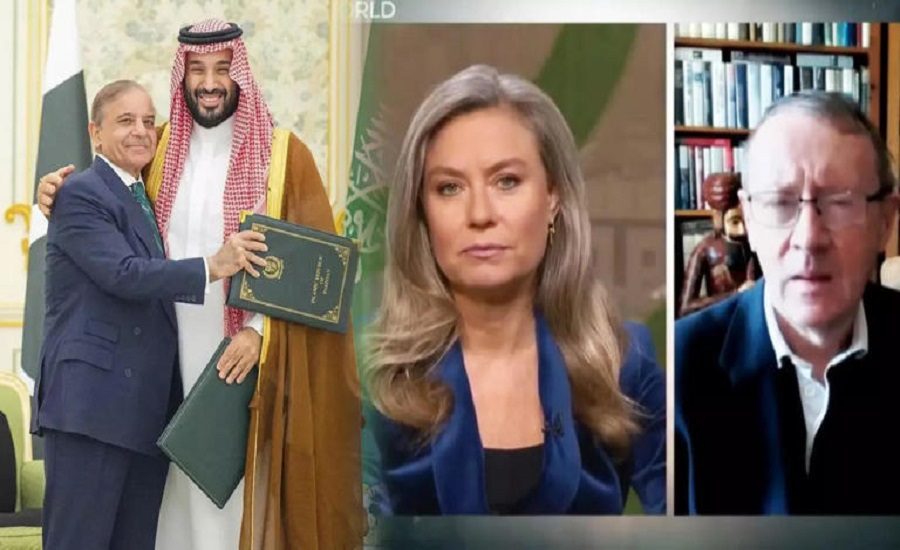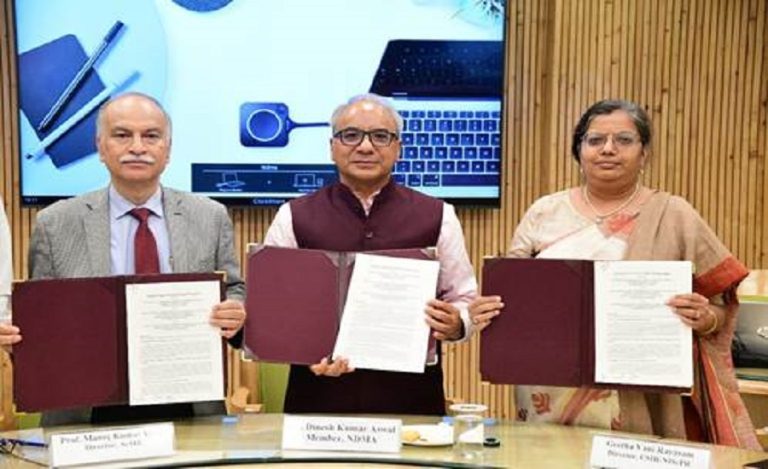In a significant escalation of South Asian tensions, India reportedly launched missile strikes on 11 Pakistani Air Force bases on May 10, under the larger strategic military initiative dubbed Operation Sindoor. The action, which remained largely undisclosed in global media, has now come into the spotlight after former British ambassador to Pakistan, Tim Willasey-Wilsey, made startling revelations during a recent interview.
According to Willasey-Wilsey, the Indian operation caused “panic in Islamabad”, prompting Pakistan to reevaluate its military capabilities and urgently seek external support.
Pakistan’s Rush Toward Saudi Arabia for Military Support
The former UK envoy revealed that Pakistan hastily signed a secret defense agreement with Saudi Arabia, driven by immediate security concerns following India’s strikes.
“India dramatically escalated the conflict. India launched missile attacks on 11 Pakistan Air Force bases, which forced Pakistan to make a sudden and hasty agreement. And Pakistan began making as many defense agreements as it could,” said Willasey-Wilsey, who is also a Visiting Professor at King’s College London.
He pointed out that Pakistan’s decision to turn to Riyadh was not just strategic but a result of pressure and vulnerability exposed by India’s precision strikes.
The Role of the Israel-Hamas Conflict in Triggering Regional Realignments
Willasey-Wilsey also linked the Saudi-Pakistan defense pact to broader geopolitical developments, particularly the Israeli strike on Hamas leaders in Qatar, which he said played a role in compelling regional actors to re-strategize.
“The timing of this agreement hinged on two things,” he explained. “First, the Israeli attack on Hamas leaders in Qatar, which paved the way for everyone to come together and forced Saudi Arabia and Pakistan to reach a secret agreement. But second, and very important, is what happened during the India-Pakistan conflict on May 10th.”
India’s Strategic Advantage and Saudi Arabia’s Delicate Balancing Act
While the defense pact offers Islamabad some breathing space, Willasey-Wilsey cautioned that Saudi Arabia is unlikely to provide direct military assistance to Pakistan in any future conflict with India. He emphasized that Riyadh will tread carefully to preserve its strong bilateral relations with New Delhi.
“India is an emerging superpower, and Saudi Arabia will not want to distance itself from India,” he noted. “Therefore, it would be best for Pakistan not to rely too heavily on this defense agreement.”
He added that while the agreement may bolster Pakistan diplomatically, there is no scenario where Saudi Arabia would send fighter jets or troops to support Pakistan militarily in a war against India.
May 10 Changed Everything: “Pakistan Realized Its Military Limitations”
According to Willasey-Wilsey, the events of May 10 were a watershed moment for South Asia. He believes the Indian strikes forced a deep introspection within Pakistan’s military leadership.
“This unexpected pressure has made the Pakistani leadership realize that its current military preparations are insufficient and that it will have to adapt its plans to take into account new realities,” he concluded.
The revelations add a new dimension to the evolving Indo-Pak conflict and raise serious questions about regional stability, defense preparedness, and future diplomatic maneuvering among South Asia’s key players.
#OperationSindoor | Former UK Diplomat to Pakistan said, India carried out missile strikes on 11 Pakistani airbases, forcing Islamabad to suddenly and in a hurry recalibrate its defense strategy.
— 🎙The Milli Chronicle (@MilliChronicle) October 1, 2025
Tim Willasey-Wilsey, visiting professor King's College London, said that the… pic.twitter.com/nHqZMH2QVM




























